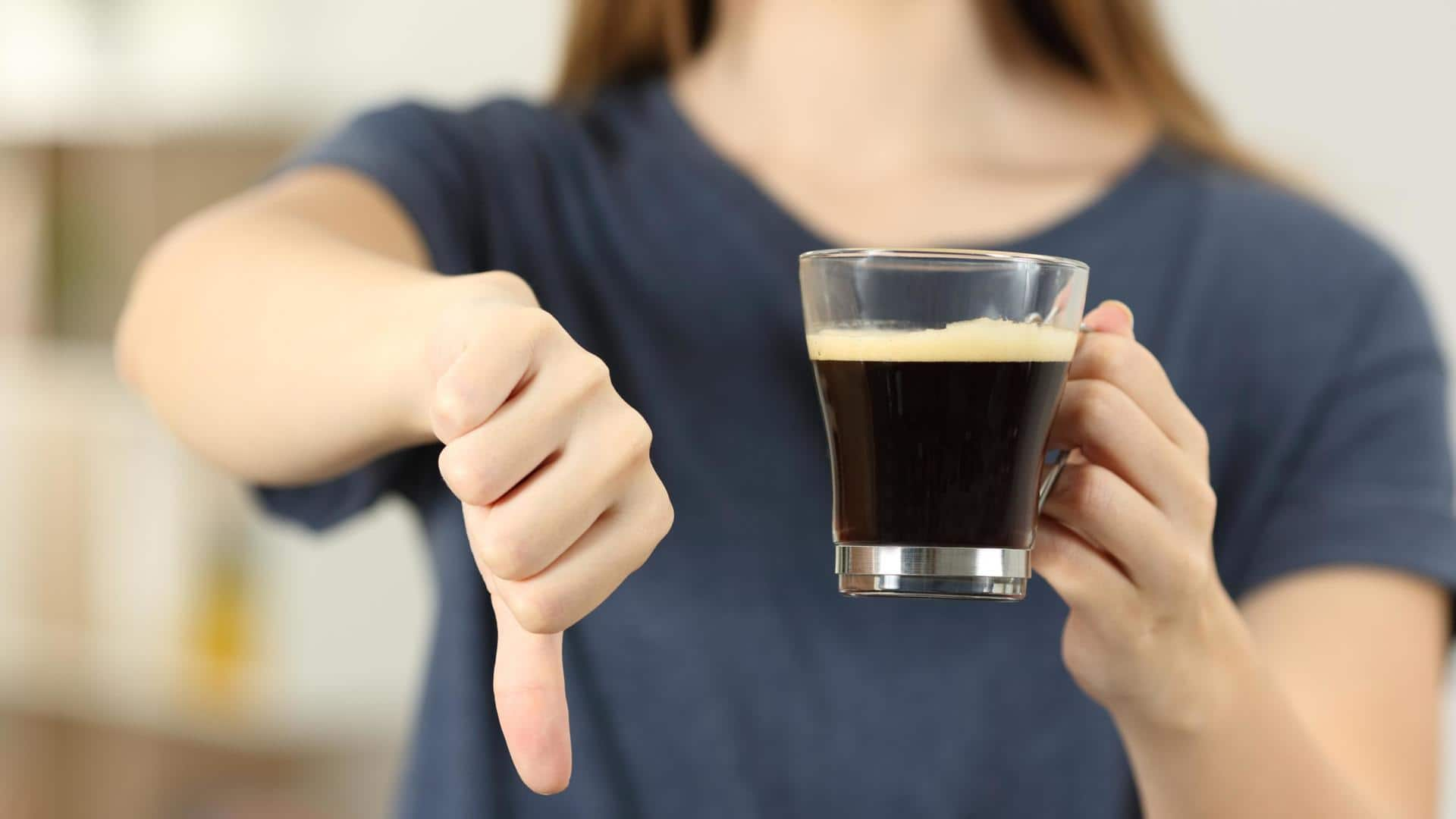
Expert-backed tips on how to safely cut down on caffeine
What's the story
Caffeine gives a much-needed kick of energy and is mostly safe if consumed judiciously. However, this stimulant doesn't work well with everyone and even the slightest contact may cause various health issues like heart palpitations, sleep problems, anxiety, etc. NewsBytes interacted with Aakash Bansal, founder, certified nutritionist, and fitness coach at FormFit, who shared five ways you can eliminate caffeine from your lifestyle.
Tip 1
Slowly progress to decrease your caffeine intake
The best way to eliminate caffeine from your routine is to slowly and gradually cut down instead of avoiding it altogether. "This method surely takes longer and requires more effort, but you will be less likely to feel symptoms of withdrawal," shares Bansal. For this, you can minimize your tea and coffee cups, chocolate consumption, and daily intake of aerated beverages or energy drinks.
Tip 2
Switch to replacements
"You might still need a beverage for the times when you used to drink a caffeinated drink," says Bansal. So what to do? Well, the nutritionist says that you can instead rely on alternatives. "You can choose from herbal teas, lemon water, or other fruit-infused drinks. Stay away from colas, sodas, and energy drinks as many of them are caffeinated," he suggests.
Tip 3
Use natural lighting
If you're someone who finishes cups and cups of coffee when staying up late-night to work or study, this tip will help you reduce your caffeine dependency. "Your body responds naturally to changes in light, so if it's unnaturally dark where you're working or studying, it may make staying alert a lot harder. Plus, natural light can increase alertness, mood, and productivity," he says.
Tip 4
Focus on getting more sleep
"If you're a regular caffeine consumer, your body may be habitual to functioning with less sleep. And you may need to increase your sleep time while you quit caffeine. Aim for seven to eight hours of sleep to avoid feeling sluggish and lethargic," states the FormFit founder. If you are decreasing your coffee intake, ensure you don't drink it after 2:00pm.
Tip 5
Limit alcohol and drink more water
"Alcohol can dehydrate you and it is also a depressant. This means that drinking could increase your cravings for the upside in caffeine the next day," enlightens Bansal. To steer clear of that, he suggests one should increase their water intake. "Get at least eight glasses of water daily to keep your energy up and avoid the need for a caffeine drink," he concluded.